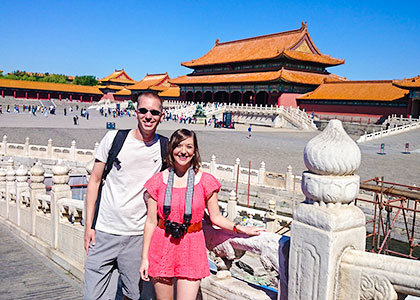20 New Suggestions For Choosing China Tour Sites
Wiki Article
Top 10 Tips On Regional Specialties When Shopping In China
1. Research Before you goTip Know what each region can offer. For instance, Suzhou for silk, Jingdezhen for porcelain, and Tibet for thangka paintings.
Pro Tip: Concentrate your shopping efforts so that you don't unnecessary time.
Con: You must be familiar with highlights in the region.
2. Locally purchase to ensure authenticity
To guarantee authenticity, buy directly from the source to ensure the high-quality of your products.
Pro: Reduces the chance of copyright products, and also supports local artisans.
Pro: It may require traveling to less-touristy areas or rural regions.
3. Visit the Workshops of Artists
TIP: Try small workshops or artisan hubs in lieu of generic shops.
Pro: This will allow you a better understanding of the art and allow you to buy directly from the artists.
Con: The cost of handmade products is higher and it can be difficult to negotiate.
4. Incorporate Cultural Meanings into the Discussion
Discover the historical context of jade carvings and cloisonne, and calligraphy.
Pro: Makes you appreciate the products and gives them more meaning.
Cons: It may take some time to understand all the cultural nuance.
5. Check Quality With Care
Tips: Check the workmanship of items such as tea, embroidery or ceramics to make sure they meet your standards.
Pro: It'll save you from disappointment because you'll get exactly what you have to.
Pro: It requires some experience or guidance to find the best quality products.
6. Beware the mass-produced goods
Choose unique handcrafted items over mass-produced copies.
Pro: Ensures that you return home with a really special souvenir.
Con: The cost of authentic craftsmanship is high and difficult to find.
7. Compare Prices
Go to several stores or stalls to compare prices for the same product.
Pro: Aids you find acceptable price points and prevents being overcharged.
Con: Time-consuming in big markets, especially.
8. Teas from Trusted Suppliers
Find reputable tea shops in the regions of Hangzhou or Fujian to locate Longjing (Dragon Well ) or Tieguanyin) teas.
Pro: Ensures authenticity and high quality.
Con: The price of high-quality teas can be prohibitive for people who are brand new to the country.
9. Local Customs
You may be expected to bargain in some areas.
Pro: It adds a fun culture to shopping.
A misunderstood understanding of customs can lead to uncomfortable situations
10. Pack Carefully
Take into consideration how you intend to move your delicate or bulky regional items such as silk and ceramics.
Pro: Prevents damages and ensures that your purchase arrives in a safe manner.
Con: Additional logistical issues and shipping cost.
Benefits of Shopping for Regional Specialties
Unique Souvenirs - Regional products are distinctive and cannot be found in any other place.
Cultural Immersion. By purchasing local foods and products, you can get to know the region's history and craftsmanship.
Support for Artisans Direct purchases made from artisans help local economies.
Pros and Cons of Shopping for Regional Specialties
Concerns about authenticity include the possibility of purchasing counterfeits, or versions with lower quality.
The transportation of heavy, fragile or bulky items can prove difficult.
Prices can be more expensive for products made locally particularly if they're handcrafted.
These guidelines will enable you to purchase memorable items on your trip to China. View the top rated read more about this incredible site for website tips including hohhot transportation, shopping in xi an, shopping in dunhuang, datong beijing high speed railway schedule and timetable, the top 4 movies about kung fu and chinese culture, entertainment in beijing, honey lake country club, eating in taiyuan, eating in urumqi, binhai aircraft copyright theme park in tianjin and more.

Top 10 Tips For Visiting Famous Temples In China
1. Tips: Every temple has specific rules and customs. Make sure you are careful when performing rituals and entering sacred areas.
Pro: Demonstrates respect for local cultures and sacred spaces.
Con: Learning all the rules could be overwhelming, especially in temples that have complex rituals.
2. Be respectful and quiet
Tip to maintain a calm attitude, remain quiet during the rituals. Do not talk or laugh loudly.
Pro: It provides an atmosphere of peace for worshipers.
Cons: The lack of conversation may be awkward for those who aren't familiar with the culture or surroundings.
3. Dress kindly
Dress modestly including long skirts or pants, and avoid wearing anything that's too open. Some temples provide scarves, shawls and other things to wrap your arms.
Pro Respect for the sacred place and its worshippers.
Cons: It might be necessary to bring extra clothing or plan your visit in the event of a hot day.
4. Offers Ritual
Follow the locals' example if are planning to make offerings of incense fruit, incense or other offerings.
Pro: It will demonstrate that you are respectful of the traditions and customs.
Cons Pros: Taking part in the ritual may be uncomfortable if your understanding isn't clear. it.
5. Do not interrupt your prayer or meditation.
Tip: Don't disturb people who are meditating, or praying. Don't take pictures or begin an argument when a person is engaged in a spiritual activity.
Pro: Shows respect for culture and ensures a peaceful, reverent atmosphere is maintained.
Con: Although you may like to capture moments for yourself, it could feel like an invasion of your privacy.
6. Lighting of Incense
Tip: Lighting incense during Chinese temples is a regular ceremony. If you are allowed to light incense, do so as a sign of respect to the gods. Holding the incense in both hands, you should bow when you offer it.
Pro: This indicates that you value the temple tradition and actively participate in its rituals.
Con: Incense is unfamiliar to many travellers. Incorrect handling can be a sign of disrespect.
7. Be careful not to touch sacred statues or objects
Tip: Do not touch sacred objects or temple statues unless asked specifically to.
Pro: It protects the sacredness and reverence of the temple.
Con: Can be confusing for those who aren't familiar with temple boundaries.
8. Be aware of temple Hierarchy
Tips - In certain temples, there are various levels of sacredness. Avoid walking in front altars or statues of holy figures, and know where to bow.
Pros: Maintains the respect and decorum of the temple, demonstrating that you are conscious of the practices of the temple.
Con: It may be difficult to comprehend the hierarchy, and it could take some additional work to figure out what is acceptable.
9. Keep Offerings Humble
TIP: If you're bringing flowers, fruits, money, etc. Keep it simple. Also, be sure you follow local rules. The extravagant and expensive gifts could be viewed as unappropriate.
Pro: Displays a sense of humility and adherence to the local customs.
Cons: It is difficult to know which type of product is suitable without local assistance.
10. You can attend temple events If you're invited
Tip: Some temples hold ceremonies, prayers or even celebrations on certain days. You can join the festivities If you're invited. Be sure to follow the crowd.
Pro: Embraces you more deeply with the temple experience and links you with local cultural traditions.
Con: You may feel awkward or uncomfortable if you are unfamiliar with the ritual.
The benefits of watching rituals in Temples
Involving in rituals can aid in understanding Chinese culture and customs.
Respectful Interaction. If you engage and observe with respect you will create relationships that are beneficial for both the people living in the area as well as temple staff.
Personal growth: Spiritual or cultural practices can be a wonderful method to enhance your life.
Experience a memorable experience taking part in temple rituals.
Pros and Cons of keeping Ritual Practices at Temples
Rituals that are unfamiliar: They can be confusing for first-time visitors which can lead to frustration or mishaps.
Cultural Mistakes: If done incorrectly, this can lead to offence or misunderstandings.
You might have difficulty understanding the meaning of rituals or instructions due to differences in language.
The physical discomfort may be experienced when performing certain rituals. For instance bowing or standing for long periods of time could cause physical discomfort.
If you follow these tips and are mindful of local customs and customs, you will be allowed to visit China's renowned Temples and participate in their rituals of worship without inflicting any offense. Have a look at the best check out top attractions in this area for more advice including temple of confucius one of the three largest ancient architectural complexes, a wonderful landscape painting lijiang river, xiamen, taishan, south luogu laneone of the oldest neighborhoods in beijing, kashgar tour maps, chinese knot which has a long history and a symbolic meaning, shopping in shangri la, hohhot transportation, shenzhen golf club and more.
